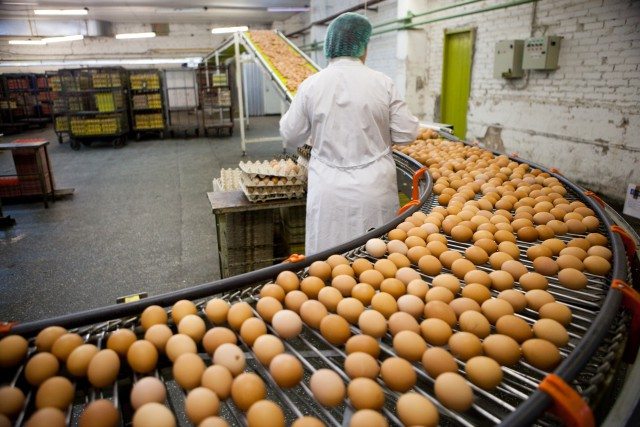the lawmaking body perceived that the law would make California egg agriculturists bankrupt

Their math demonstrated right: California voters passed the Humane Society's measure 63.5 percent to 36.5 percent. After two years, the lawmaking body perceived that the law would make California egg agriculturists bankrupt, compelling them to spend loads of money to redesign their offices while contending with out-of-state makers that weren't liable to the direction (and the orderly ventures and cost expands it would involve). So the law was extended to cover all eggs sold in the state.
Egg makers outside of California abraded at the development, contending California couldn't advise agriculturists in different states how to continue on ahead. Be that as it may, a government judge dissented, so as of January 1, 2015, any individual who needs to offer eggs in California should follow the new standards. Numerous California egg makers are changing to confines that will give each winged creature 116 square creeps of land. One agriculturist revealed to Civil Eats the change would constrain him to raise his costs by 10 to 15 pennies twelve – an expansion, however not a disastrous one.
Some out-of-state makers are hustling to makeover their henhouses, says Ken Klippen, a lobbyist for the National Association of Egg Farmers, yet others can't stand to do the switch. Klippen is incredulous that enough henhouses will be changed over so as to fulfill request. "They have to import eggs from 20 million chickens every day to encourage California," he clarifies. On the off chance that there's space for less than that in agreeable henhouses when the law produces results, that could make an egg lack in California, driving costs up. Different markets, be that as it may, would then progress toward becoming oversaturated, smothering costs. On the off chance that that happens, Klippen says, "It will leave (ranchers) in a lot of pain."
Be that as it may, sufficiently accepting agriculturists do finish before time runs out, and the "financial tidal wave" Klippen fears doesn't happen, the every living creature's common sense entitlement camp will have a critical triumph to celebrate. Responding to the current court triumph, Humane Society president Wayne Pacelle composed that he trusts California's new law "is a major factor in introducing another, better, more secure time in cultivate creature insurance in our country."
It's an elevated objective, yet not really a doubtful one. California has for some time been to ecological law what New York is to mold: It drives, others take after. The state's weighty clean auto guidelines, for example, made ready for national principles requiring autos and light trucks to get 54.5 miles-per-gallon by 2025 — a standout amongst the most critical things the government has done to address our atmosphere issue.
Presently, the state might cut out a comparative position in every living creature's common sense entitlement law. It actualized the primary statewide restriction on foie gras in the U.S., which is delivered by coercively feeding ducks and geese to stuff their livers. (Lawful difficulties to the foie gras boycott have fizzled.) And since the egg law passed, new gauges for hens have been affirmed by voters or lawmaking bodies in Oregon, Washington, Michigan and Ohio. (A joint exertion by the Humane Society and one industry gathering to get a national egg law incorporated into the current Farm Bill, nonetheless, fizzled and is never again being sought after.)
As Richard Frank, executive of the California Environmental Law and Policy Center at the University of California-Davis, puts it: "Laws that start in California frequently don't end in California."